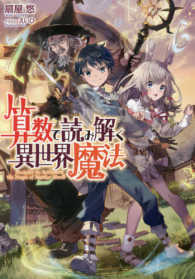Full Description
This book offers the first ever critical history of dementia studies.
Focusing on the emergence of dementia studies as a discrete area of academic interest in the late 20th and early 21st centuries, it draws on critical theory to interrogate the very notion of dementia studies as an entity, shedding light on the affinities and contradictions that characterise the field. Drawing together a collection of internationally renowned experts in a variety of fields, including people with dementia, this volume includes perspectives from education, the arts, human rights and much more. This critical history sets out the shared intellectual space of 'dementia studies', from which non-medical dementia research can progress.
The book is intended for researchers, academics and students of dementia studies, social gerontology, disability, chronic illness, health and social care. It will also appeal to activists and practitioners engaged in social work and caregiving involved in dementia research.
Contents
Introduction; Part I: Paradigms; 1. Pathologisation, (bio)medicalisation & biopolitics; 2. The century without a war: Kitwood's concept of malignant social psychology and the need for historicisation in dementia studies; Part II: Discourses; 3. Language about people with dementia; 4. A Semiotic analysis of meanings of dementia around the world; 5. Literary dementia studies: from managing estrangement to imaginatively reconceptualizing forgetfulness; Part III: Intersectionalities; 6. Gender awareness and feminist approaches in dementia studies; 7. "On my good days, I can [...] almost pass for a normal person": reading the film Still Alice using the conceptual lens of heteronormativity; 8. Race, ethnicity and culture: problematic application in dementia and old age; Part IV: Methodologies; 9. 'Whose story is it and what is it for?': Life story as critical discourse in dementia studies; 10. From symptoms to citizenship: A critical reading of the perceived value of arts and culture in a dementia context; Part V: Politics; 11. Human rights & dementia: a 'socratic dialogue'; 12. Experts by experience: "I don't want to be shaken, I want to be a shaker"; Conclusion: multi-disciplinary, multi-historied, multi-critical








